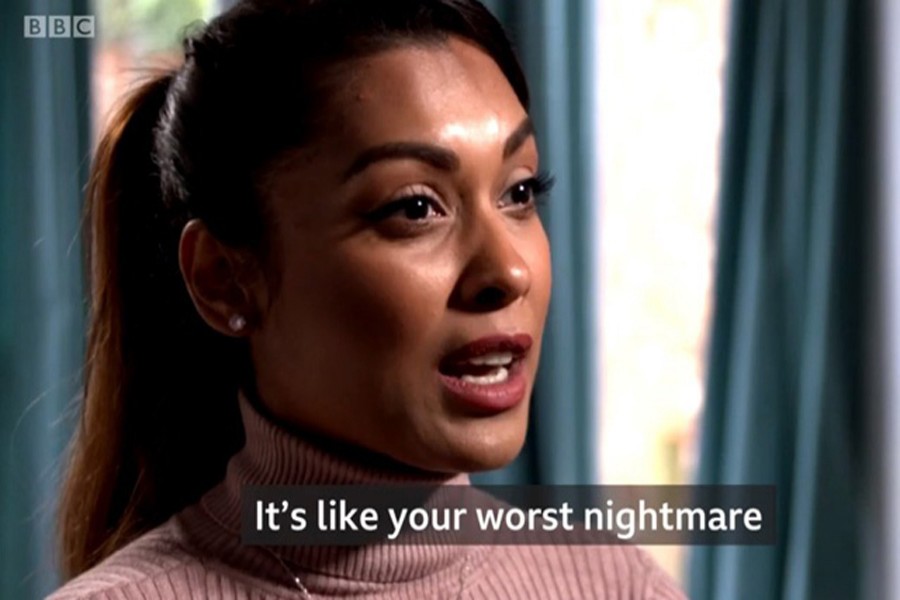A 35-year-old woman living in the UK has recounted the horrific story of her forced marriage in her country of origin - Bangladesh - 20 years ago.
The BBC has run several pieces highlighting her story amid debate over criminalising such marriages as a charity says jailing the parents may stop victims from speaking out.
Rubie Marie, who was forced to marry in Bangladesh when she was 15, told the BBC that once she was married, she was raped "more or less, every single day" so her new husband could have a child and a ticket to live in the UK.
Forced marriage became a criminal offence in 2014, but only one case has been brought in Wales since then - with four convictions in total across the UK, according to the BBC.
However, the Welsh Government estimates there are up to 100 cases of forced marriage every year, it said in one of the reports.
Britain banned forced marriage in 2014. The maximum penalty is seven years.
The government's Forced Marriage Unit received reports of nearly 2,000 possible cases last year, many involving girls from South Asian backgrounds. But campaigners say the figure is just the tip of the iceberg.
In May, a UK court found a couple guilty of forcing their daughter into marriage in Bangladesh in the second such conviction in a week.
The Crown Prosecution Service (CPS) said the British teenager, who cannot be named for legal reasons, thought she was going to Bangladesh in 2016 with her family for a holiday.
She ended up in a remote village where she was told she would be married. When she refused, her father threatened to slit her throat and "chop her up" in 18 seconds - one for every year of her life - the CPS said.
Born and raised in south Wales, Marie's story is almost the same.
She had a happy childhood but everything changed once she hit puberty.
She was taken to Bangladesh in 1998 at the age of 15 under the pretence of going on a six-week holiday.
When six months passed and they still hadn’t returned her father started making excuses such as like lack of money, Marie told the BBC.
"I was sitting down having dinner with the whole family and he just came in and he sat down and he started to eat and out of the blue, and I remember it like it was yesterday.”
"'Wouldn't it be great if we got Ruby married?' And I was mortified. I was a kid and I had a tantrum. I threw my plate on the floor. I started kicking off, banging the doors, ran into my room screaming, shouting. I just didn't know how to comprehend that information.”
The practice of arranged marriage, which is very common in Bangladesh, seemed like a bidding system to Marie, a teenager then from the UK.
"One of my uncles went and started bidding me. It was horrible. I was treated like a slave."
Finally she was forced to marry a man twice her age and for her engagement she was "dressed up like a doll".
"And I was just sitting there just thinking 'I'm just an object'."
Once she was married, her new husband wanted a child.
"More or less, I'd been raped every single day to get pregnant, so then he's got an official British pathway of coming to Britain because he's got a child. That was their plan," she added.
She got pregnant and came back to Wales to give birth. When the baby was born, she fled: "That brought shame to the family again in their eyes. And I was disowned for a very long time."
Rubie now works as an ambassador, educating people about forced marriage.
"Now I'm speaking and talking to the world and sharing in that way of there is light at the end of the tunnel, there is a place for you in this world.
But, she added, about speaking out against forced marriage: "It is hard because you love your family of course you do... But at the end of the day abuse is abuse."
Shahien Taj of the Cardiff-based Henna Foundation told BBC Wales Live more prevention work was needed to educate perpetrators, who are often the victims' parents.
The charity said victims often wanted to return to the family home once the situation was resolved.
Samsunear Ali from the charity Bawso said education was key as many parents did not even realise they were breaking the law.
The Home Office said it was essential victims had confidence to speak out.
A Home Office spokesman said: "We know that forced marriage is often a hidden crime and so it is essential that victims have the confidence to come forward to get the help they need.
"We are seeking views on whether introducing a mandatory reporting duty might help strengthen protections for victims and ensure more perpetrators are brought to justice.
"The consultation is open to everyone and we are particularly interested in hearing from victims and survivors of forced marriage, and professionals with expertise in the issue of forced marriage."


